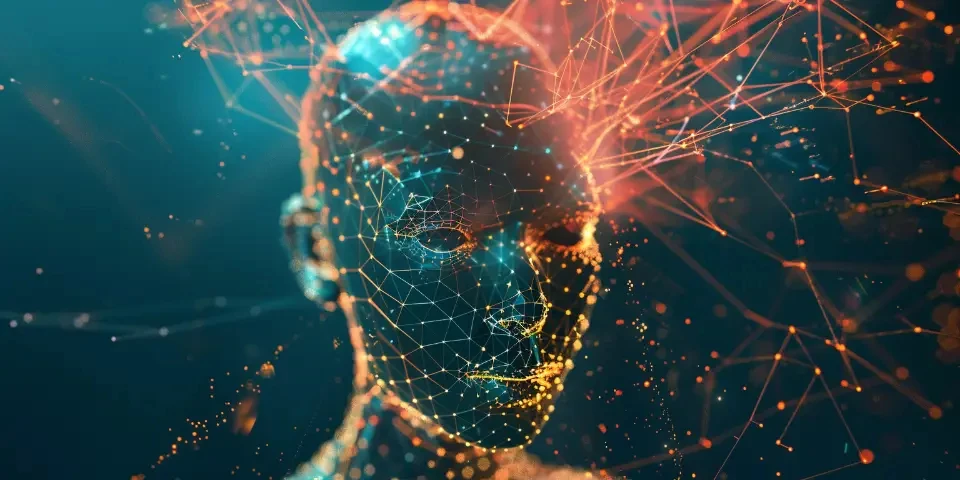Revolutionizing Customer Service How AI Chatbots Are Transforming the Industry
In today's fast-paced and ever-evolving digital world, customer service has become an essential aspect of ensuring customer satisfaction and loyalty. However, traditional customer service methods are often time-consuming, expensive, and not always efficient. Thankfully, the advent of Artificial Intelligence (AI) chatbots is revolutionizing the customer service industry and transforming the way businesses interact with their customers. In this article, we explore the numerous ways AI chatbots are transforming customer service and the benefits they bring to businesses.
1. Instantaneous and 24/7 Support
One of the most significant advantages of AI chatbots in customer service is their ability to provide instantaneous support. Unlike humans, chatbots do not need breaks or sleep and can be available 24/7 to assist customers. This ensures that customers receive prompt responses to their queries or concerns, enhancing their overall experience and satisfaction. Whether it's a simple query or a complex issue, AI chatbots can provide immediate assistance, saving both time and resources for businesses.

Additionally, AI chatbots can handle multiple customer interactions simultaneously, ensuring that no customer is kept waiting for support. As a result, businesses can significantly increase their service capacity and provide a seamless experience to all customers, regardless of the volume of queries received.
2. Personalized and Contextualized Interactions
AI chatbots have the ability to gather and analyze vast amounts of customer data. This enables them to provide personalized and contextualized interactions with customers. By leveraging this data, chatbots can anticipate customer needs, preferences, and behaviors, resulting in more tailored and relevant recommendations or solutions.
For example, if a customer frequently purchases a specific brand of shoes, the chatbot can proactively suggest new releases or promotions from that brand. This level of personalization enhances customer engagement, leading to increased sales and loyalty.
3. Improved Efficiency and Cost-Effectiveness
Traditional customer service methods often require a large team of agents to handle a high volume of customer inquiries. This not only increases costs but also introduces the possibility of human error or inconsistency in responses. On the other hand, AI chatbots can handle a significant number of customer interactions simultaneously, reducing the need for a large customer service team.
By automating routine and repetitive tasks, AI chatbots allow businesses to allocate human resources more effectively. This means that human agents can focus on more complex customer issues, where their expertise and empathetic skills are most valuable. As a result, businesses can improve their efficiency, reduce costs, and deliver a higher level of service.
4. Multilingual and Global Support
With the rise of e-commerce and globalization, businesses now have customers from all over the world. Language barriers can often pose a challenge in providing effective customer service. However, AI chatbots can be programmed to communicate in multiple languages, enabling businesses to provide multilingual support effortlessly.
Furthermore, AI chatbots can integrate with translation tools or services, ensuring accurate and real-time translations. This allows businesses to expand their customer base and cater to a global audience without the need for extensive language resources.
5. Proactive Customer Engagement
AI chatbots are not limited to reacting to customer inquiries; they can also initiate proactive customer engagement. By analyzing customer behavior and preferences, chatbots can send personalized messages, recommend products or services, or provide proactive assistance. This proactive approach can help drive customer engagement, increase sales, and improve customer satisfaction.
6. Seamless Integration with Existing Systems
AI chatbots can be seamlessly integrated with existing customer support systems or platforms used by businesses. This ensures a smooth transition and reduces the need for significant changes in the existing infrastructure. Additionally, chatbots can be integrated with Customer Relationship Management (CRM) software, allowing businesses to track customer interactions, preferences, and behavior effectively.
7. Continuous Learning and Improvement
AI chatbots are not static; they continuously learn and improve over time. Through Natural Language Processing (NLP) and machine learning algorithms, chatbots can refine their responses and understand customer intent better. This ongoing learning allows chatbots to provide more accurate and relevant solutions, leading to higher customer satisfaction.
Businesses can also leverage chatbot analytics to gain insights into customer behavior and preferences. By analyzing these metrics, businesses can further optimize their customer service strategies and identify areas for improvement.
8. Addressing Frequently Asked Questions (FAQs)
One prominent use case of AI chatbots is addressing frequently asked questions. By analyzing past customer interaction data and website content, chatbots can be programmed to provide accurate and relevant responses to common queries. This frees up human agents' time from repetitive tasks, allowing them to focus on more complex customer issues.
Frequently Asked Questions
Q: Are AI chatbots capable of simulating human-like conversations?
A: While AI chatbots have made significant advancements in natural language processing, they are still unable to simulate human-like conversations convincingly. However, ongoing research and developments in AI are continuously improving chatbot capabilities in this regard.
Q: Can AI chatbots handle sensitive customer information securely?
A: Yes, AI chatbots can handle sensitive customer information securely. Businesses need to implement robust security measures and encryption protocols to ensure data confidentiality and integrity. It is essential to choose reputable and trusted chatbot platforms that adhere to stringent security standards.
Q: Will AI chatbots replace human customer service agents entirely?
A: AI chatbots are designed to complement human customer service agents, not replace them entirely. While chatbots excel in handling routine and repetitive tasks, human agents bring empathy, complex problem-solving abilities, and a personal touch to customer interactions. The ideal customer service strategy involves a combination of both AI chatbots and human agents.
